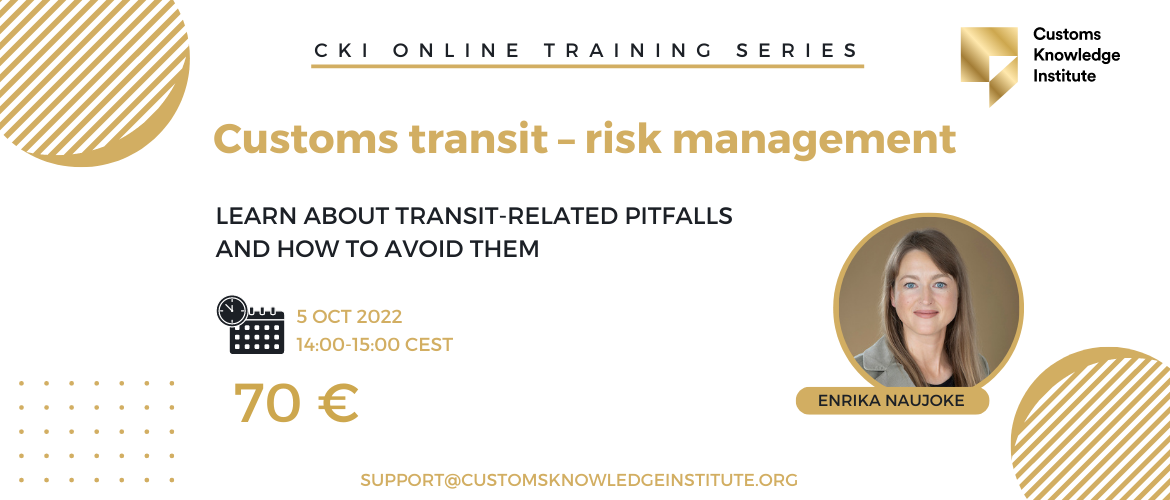Customs transit – risk management
2022-09-23 2022-10-06 14:15Customs transit – risk management

Do you know the types of customs transit procedures and the consequences of picking the wrong one? Do you know what alternative proof is and what a challenge it can be to receive it? Do you know what issues related to customs IT systems the holder of the procedure may face? If you are eager to learn the answers, ask questions and/or share your experience, join the webinar on 5.10.2022 at 14:00-15:00 CEST.
The webinar is relevant for everyone interested in transit-related risk management in the EU, the UK, EFTA countries (Iceland, Norway, Liechtenstein and Switzerland), Turkey, Ukraine, the Republic of North Macedonia, and Serbia, i.e. countries applying common transit procedure. Hundreds of thousands of these procedures are started every day, however, not all of them end properly – some cause expensive issues for the holder of the procedure, and the customer and other stakeholders might be impacted as well. During the webinar, we will draw your attention to some of the issues and discuss how to prevent them.
Content
- The importance of choosing the right type of transit procedure;
- The discharge of the transit procedure – what businesses tend to think and what is it in fact;
- The alternative proofs and the challenges you might face to receive them;
- Customs IT systems and the guarantee-related challenges the holders of the procedure might face.
Lecturer
Enrika Naujoke, editor of Customs Compliance & Risk Management journal, lecturer at the Customs Knowledge Institute (CKI). Enrika contributed to the Transit module of the CKI ‘Customs Clearance and Trade Compliance in the EU’ training.
When, where
5.10.2022, 14:00-15:00 CEST, online
Registration
After the payment, we will send you the link to the webinar per e-mail.
Certificate
After the training, you will be provided with a digital certificate.
Contacts
Your questions are always welcome at support@customsknowledgeinstitute.org